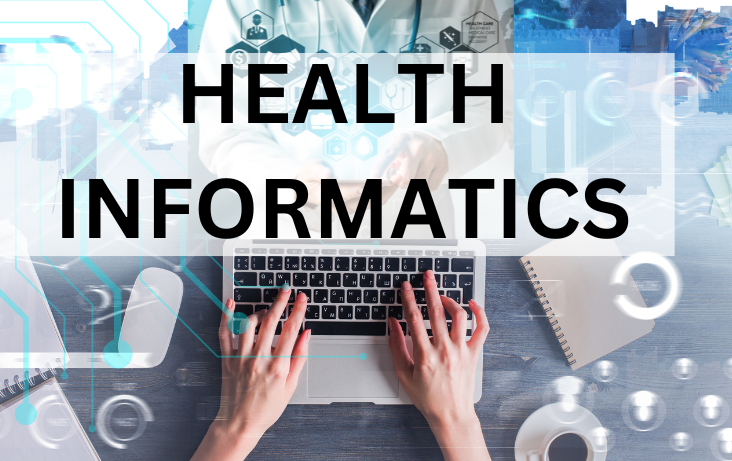In an era dominated by technological advancements and data-driven decision-making, the field of health informatics has emerged as a critical player in the healthcare landscape. Professionals with expertise in health informatics are in high demand, and earning a master’s degree in this field can open up a world of opportunities. In this blog post, we will explore what health informatics entails, the benefits of pursuing a master’s degree in the field, top universities offering online programs, the curriculum and coursework involved, career opportunities, and the future of healthcare with a focus on the demand for health informatics professionals.
What is Health Informatics?
Health informatics is the intersection of healthcare, information technology, and data analysis. It involves the effective use of technology to organize, manage, and analyze health information, ultimately improving patient care, outcomes, and the overall efficiency of healthcare delivery. Professionals in this field work with electronic health records (EHRs), health information exchange (HIE), data analytics, and other technologies to enhance the healthcare system.
Benefits of Earning a Master’s Degree in Health Informatics
- 1. Specialized Knowledge: A master’s degree provides in-depth knowledge and skills specific to health informatics, making graduates well-equipped to address the unique challenges in the healthcare industry.
- 2. Career Advancement: Employers often seek candidates with advanced degrees for leadership and managerial roles. A master’s degree can open doors to higher-ranking positions within healthcare organizations.
- 3. Versatility: Health informatics professionals are needed across various healthcare settings, including hospitals, clinics, research institutions, and government agencies. A master’s degree ensures versatility in career options.
Top Universities Offering Online Health Informatics Programs
Several prestigious universities offer online health informatics master’s programs, providing flexibility for working professionals or those unable to attend traditional on-campus courses. Some of the top institutions include:
- Johns Hopkins University: Known for its strong emphasis on research, Johns Hopkins offers an online Master of Science in Health Informatics program.
- University of Illinois at Chicago: UIC’s online Master of Science in Health Informatics program focuses on preparing students for leadership roles in healthcare IT.
- University of California, Davis: UC Davis offers an online Master of Health Services — Informatics program with a curriculum designed to bridge the gap between healthcare and information technology.
- University of Michigan: The Master of Health Informatics program at the University of Michigan provides a comprehensive education in health information systems and data analysis.
Curriculum and Coursework of a Health Informatics Master’s Program
The curriculum of a health informatics master’s program typically includes a combination of core courses and electives. Core courses may cover topics such as health data management, healthcare information systems, data analytics, and legal and ethical issues in health informatics. Electives allow students to tailor their education to specific areas of interest, such as clinical informatics, public health informatics, or health informatics leadership.
Career Opportunities with a Health Informatics Master’s Degree
Graduates with a master’s degree in health informatics are well-positioned for a variety of roles, including:
- Health Informatics Specialist: Analyzing and managing health data to improve healthcare processes and outcomes.
- Chief Information Officer (CIO): Overseeing the strategic use of technology within healthcare organizations.
- Clinical Informatics Manager: Implementing and managing electronic health record systems to enhance clinical workflows.
- Data Analyst in Healthcare: Utilizing data to identify trends, make predictions, and inform decision-making in healthcare settings.
The Future of Healthcare and the Demand for Health Informatics Professionals
As the healthcare industry continues to evolve, the demand for health informatics professionals is expected to grow. The integration of advanced technologies, such as artificial intelligence and machine learning, will further emphasize the importance of skilled individuals who can harness the power of data to drive healthcare innovation. From improving patient outcomes to streamlining healthcare operations, health informatics professionals will play a pivotal role in shaping the future of healthcare.
Conclusion
Earning a master’s degree in health informatics opens doors to a dynamic and rapidly growing field where technology and healthcare intersect. As the demand for skilled professionals continues to rise, online programs offered by top universities provide accessible pathways for individuals to gain the knowledge and expertise needed to make a significant impact on the healthcare industry. Whether you’re a seasoned professional looking to advance your career or a newcomer to the field, a health informatics master’s degree can be the key to unlocking a rewarding and impactful future in healthcare.









